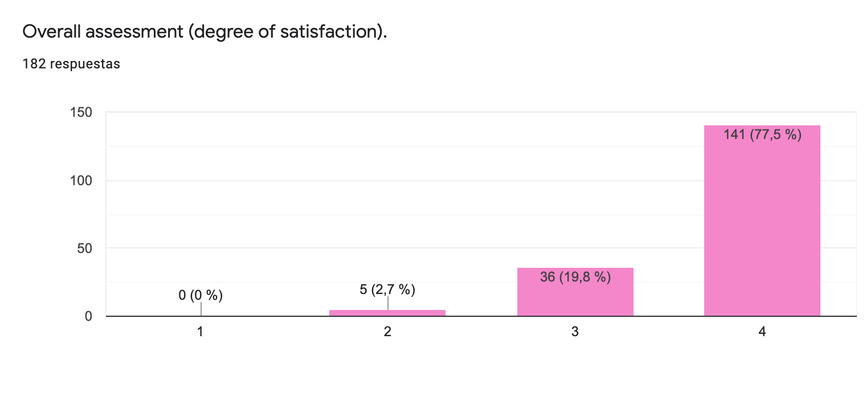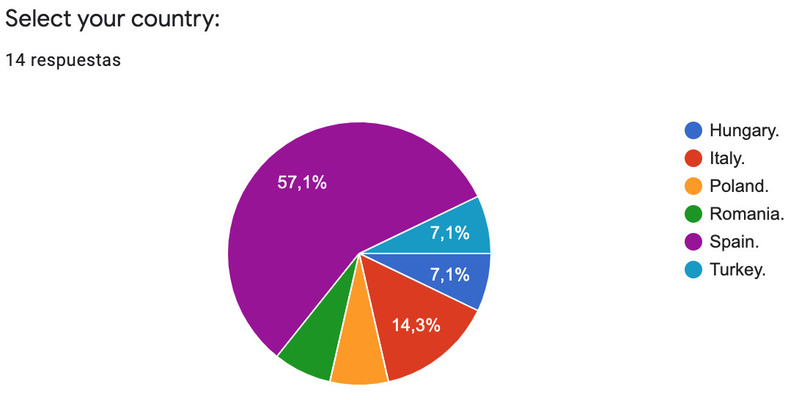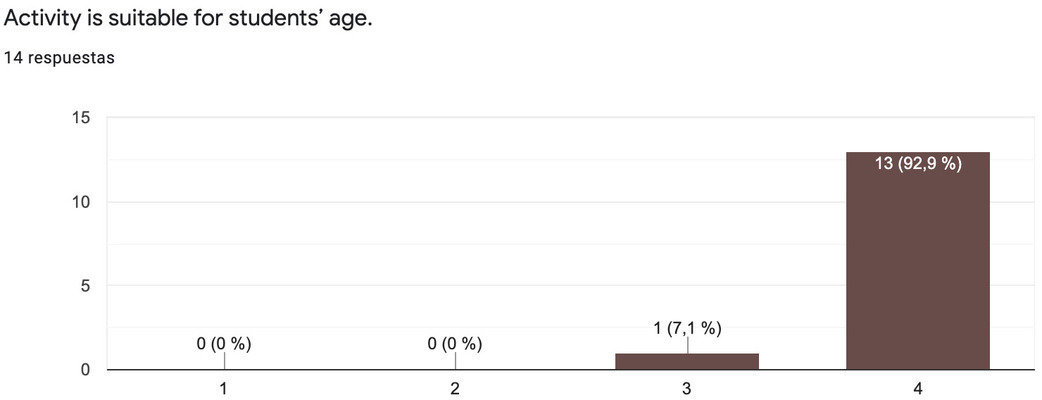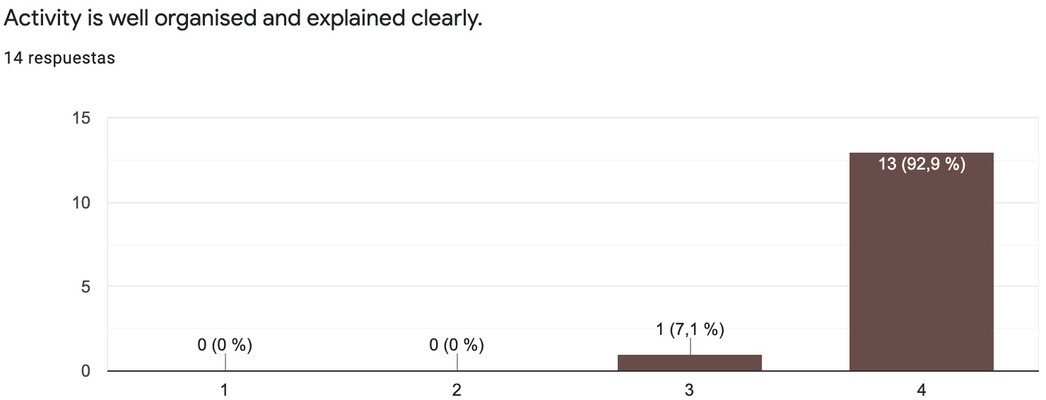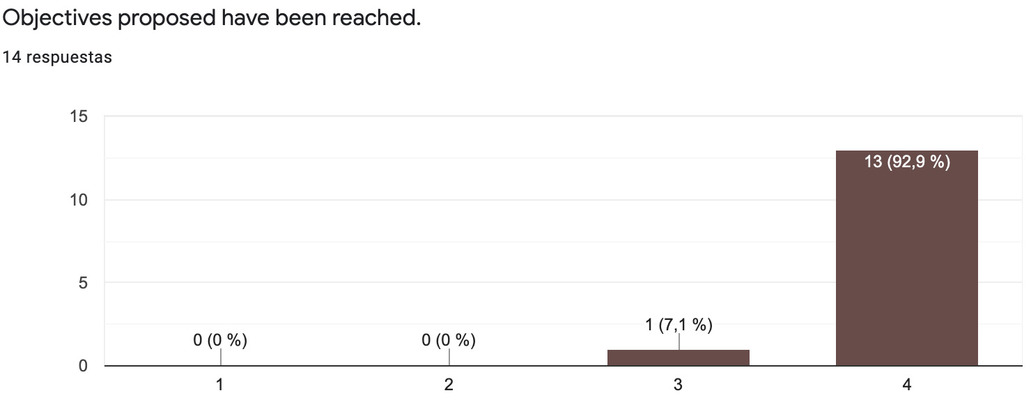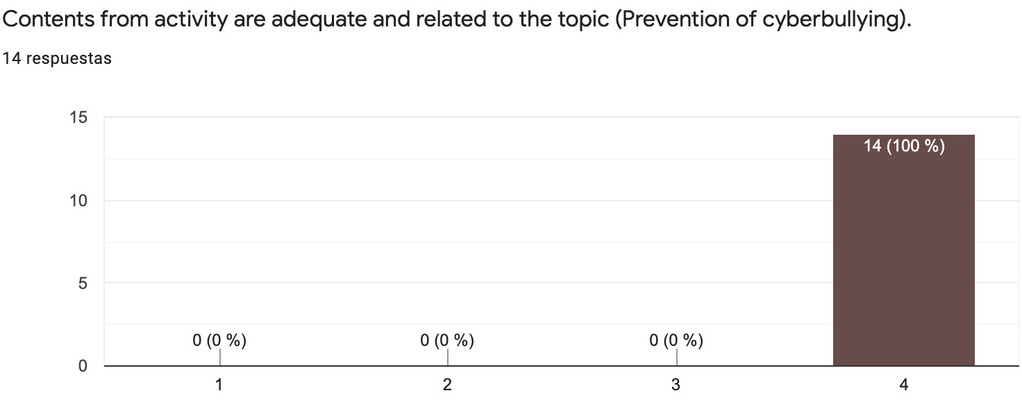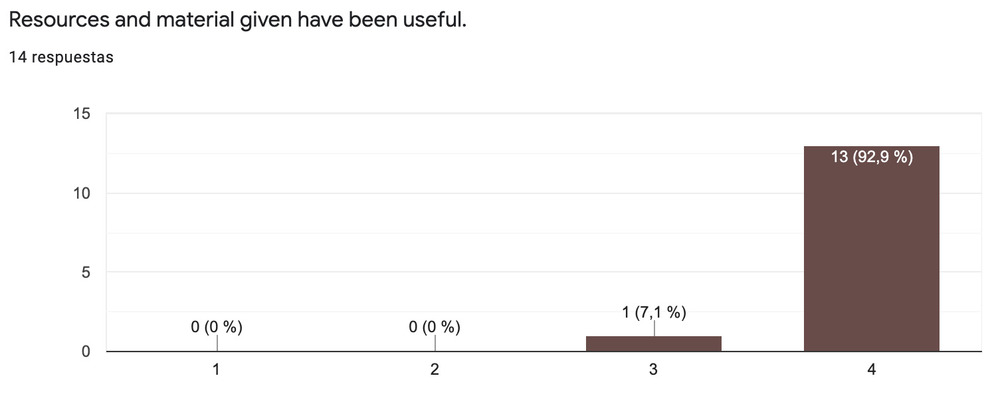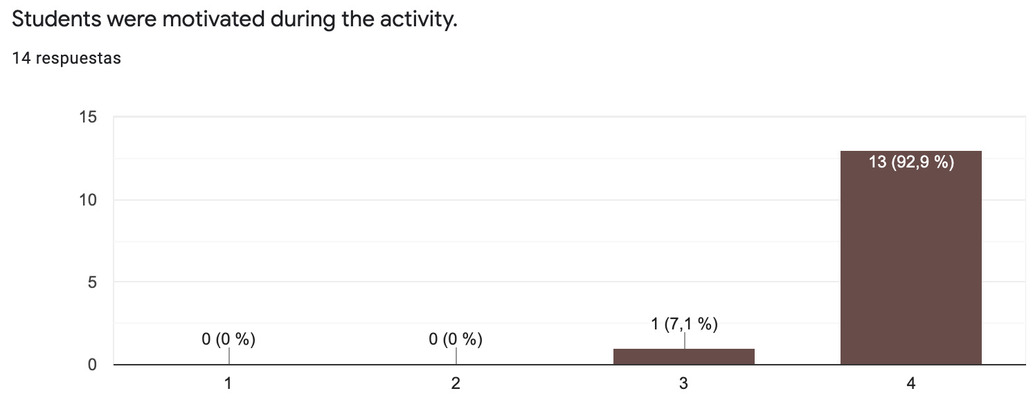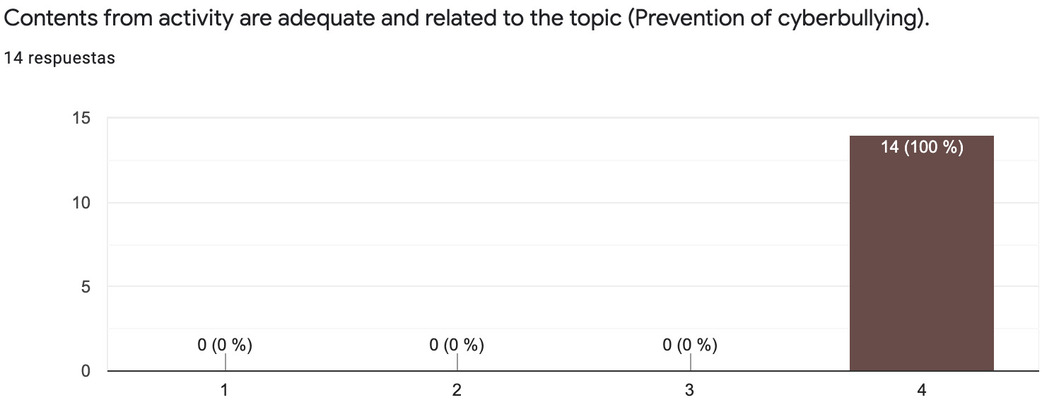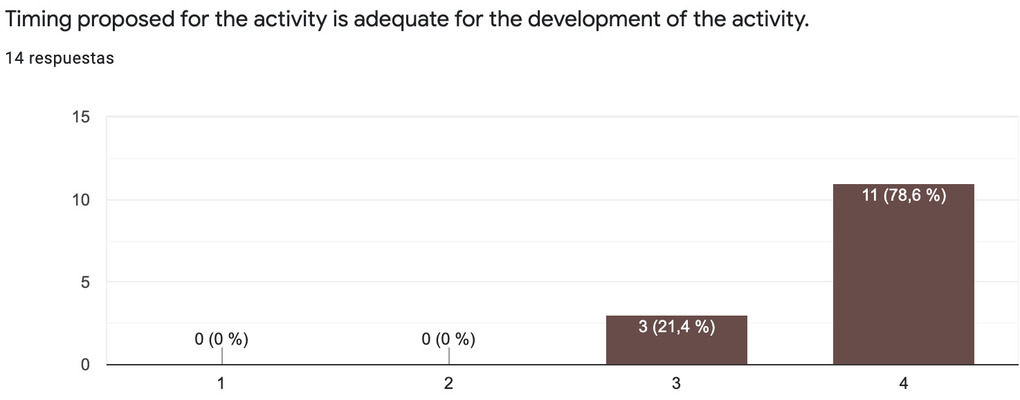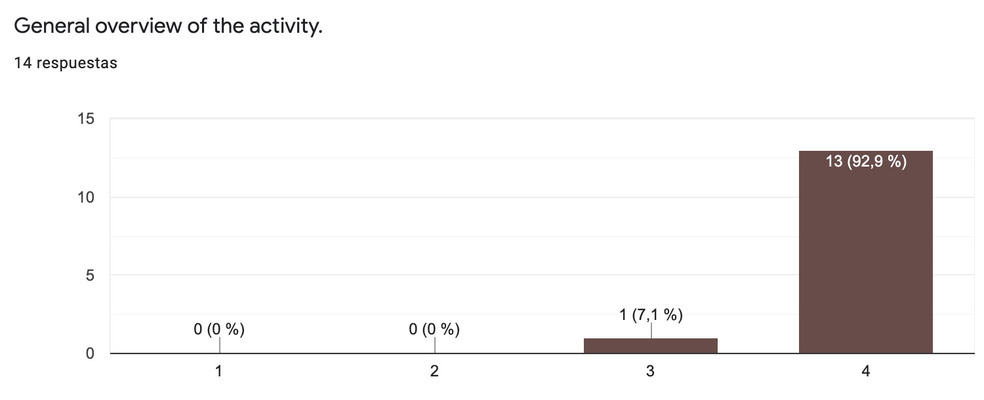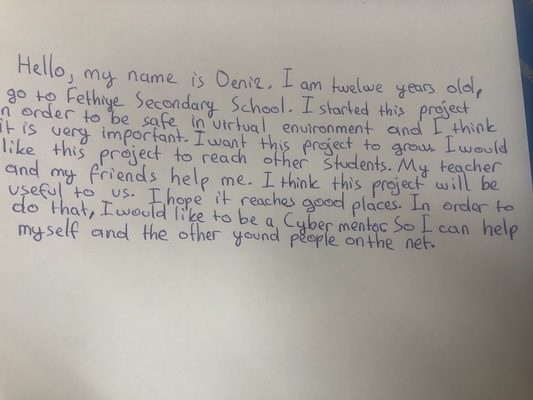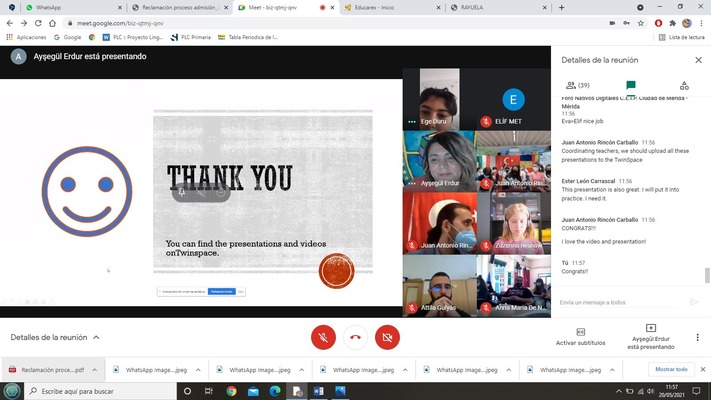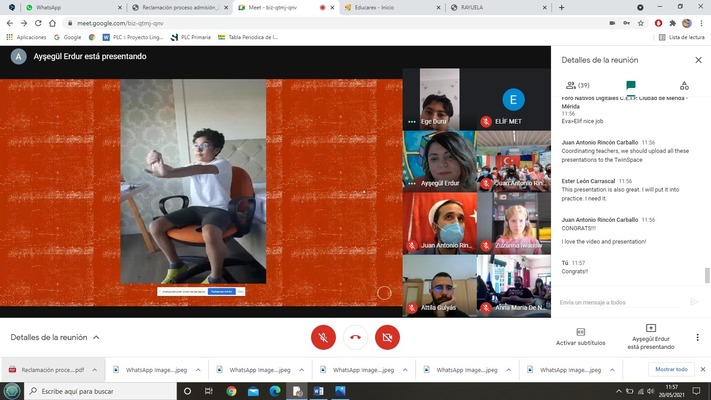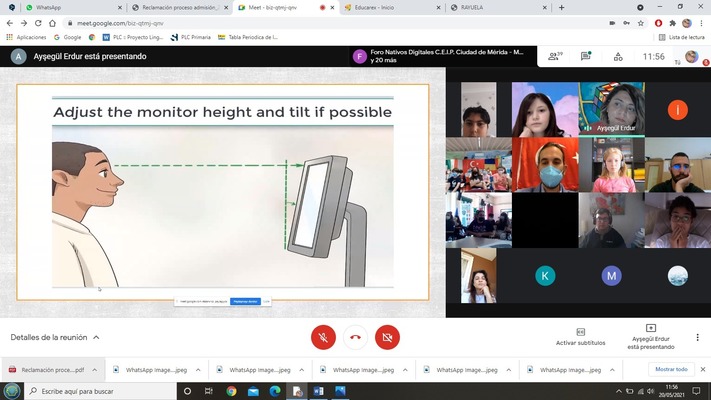IMPACT OF THE PROJECT
In order to evaluate the impact of our project we need to do a comparative study. The coordinating partners collaboratively designed a questionnaire for students, teachers and family members. We consider it the best way to analyse the impact of the activities on the lives of their participants. Its results will help us to know the state of our organisations in relation to the general objectives of the project and will be the starting point for the activities in the third and last year of the project.
The same instrument will be used to analyse the final impact at the end of the project.
QUESTIONNAIRE
Below we share the document containing the questionnaire made up of 17 questions, both quantitative and qualitative, which will complement and help to better understand the results.
ANALYSIS OF THE RESULTS
182 members of our respective educational communities participated in the study. The percentages are shown in the graph below.
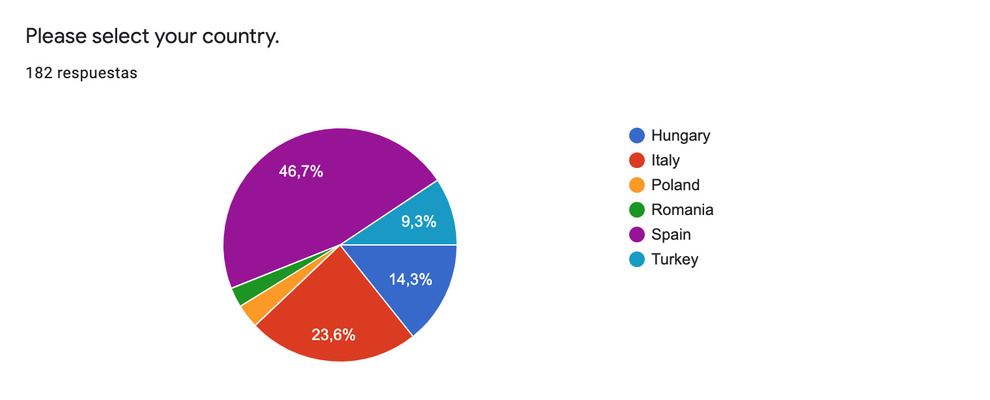
As mentioned above, pupils, teachers and family members participated in the impact assessment. The highest response rate was given by pupils (61%) as this is the group to which the activities of our project are directly addressed. In second place are the families (20.3%), followed by the teaching staff (15.9%). For the analysis of the data, let us consider three categories according to roles: students, teachers (teachers, teachers coordinators of the Erasmus Project and Members of the Team Manager) and family members.
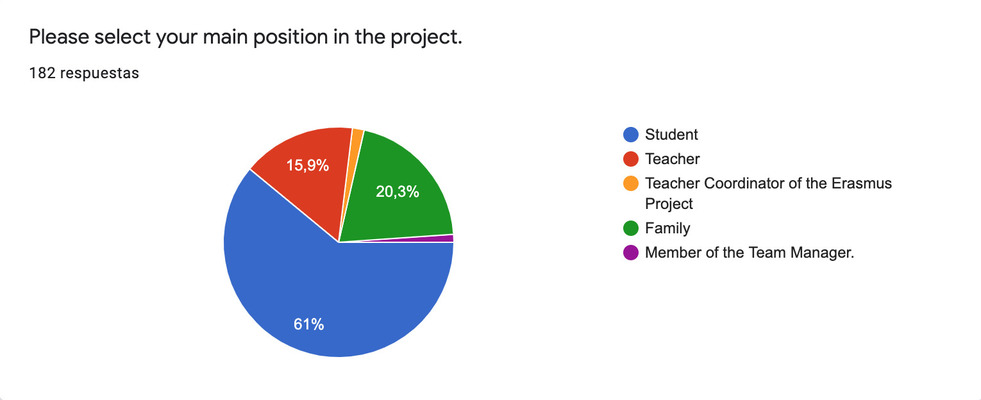
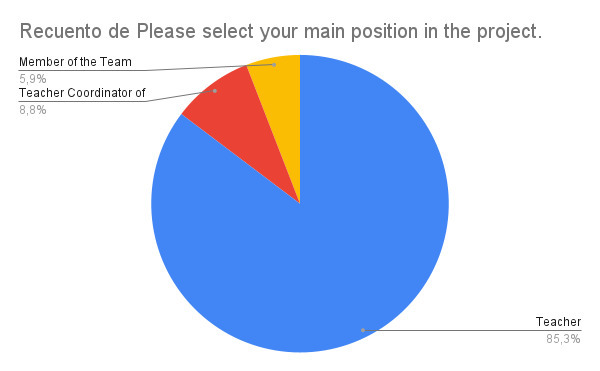
97.8% of the participants surveyed consider that they have heard about our project at some point. This good data makes us think that we are doing a good dissemination of the activities of the project in the blog, TwinSpace, websites, social networks and in the local and/or regional press.
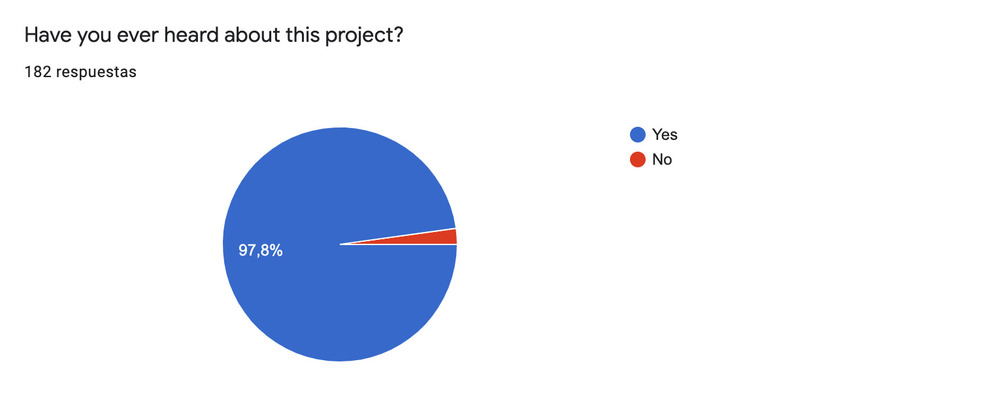
78.6% were aware of the project start date. The fact that 21.4% are unaware of this figure may be due to the new students who have started this academic year and the extension of the academic year due to Covid-19.
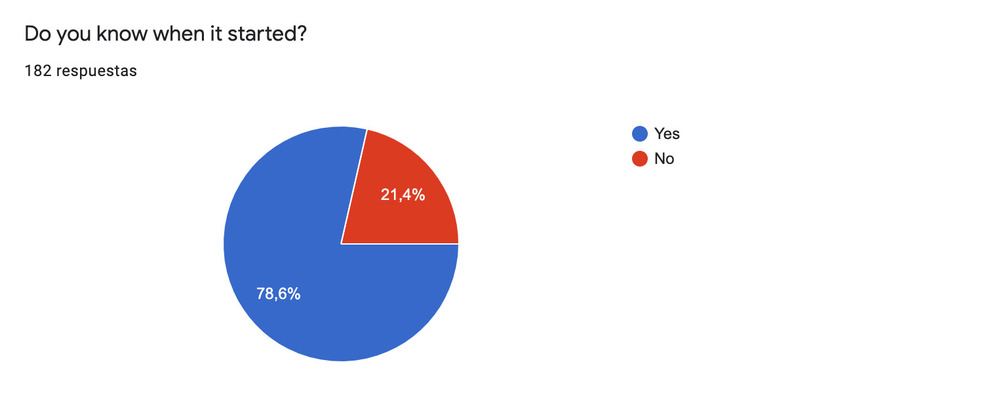
82.4% of the participants feel that they are involved in the project. 17.6% feel that they are not, and the highest percentage is found among family members. They may not participate in the activities aimed at family members or they may consider that the project activities are exclusive to the academic environment and do not have continuity at home.
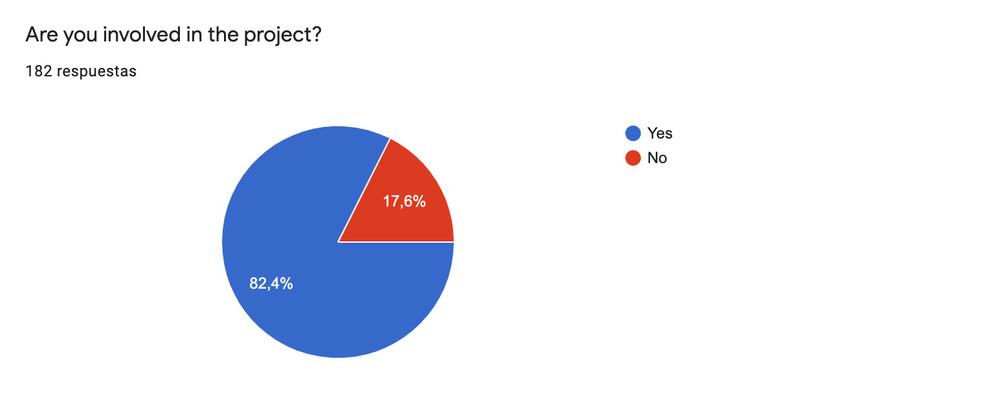
Cybermentor pupils are one of the pillars of our project and for this reason we asked those surveyed if they were aware of their role in our project. The results show that 32.4% do not know who these students are and the greatest lack of knowledge is among the student body (44.8%).
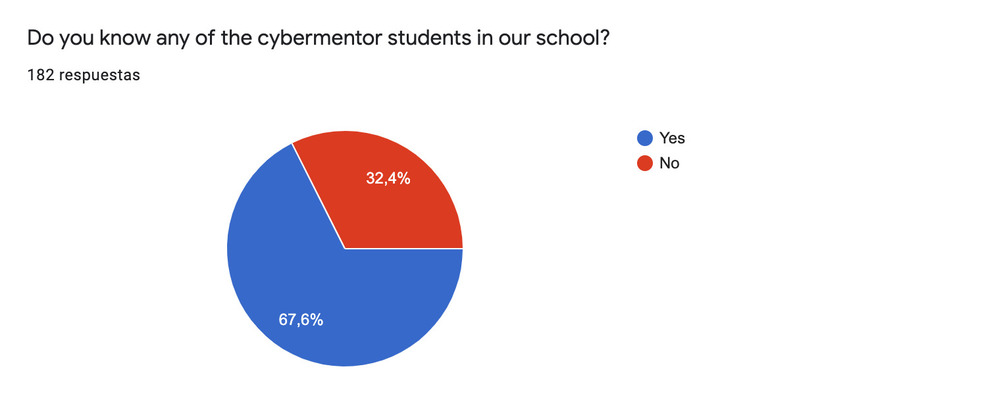
The exchange and implementation of good practices is another important pillar of our project. These are known by 81.3% of those surveyed. The group that is most unaware of them are family members (35.1% of the sample of family members). Of the 128 responses received, we ordered the good practices in order of the highest to lowest number of mentions received.
- The Club of the braves (Unit 3).
- Fake News (Unit 2 - Italy).
- Information is not knowledge (Unit 2 - Hungary).
- Communication on the Internet (Unit 2 - Poland).
- What do you mean? (Unit 2 - Turkey).
- Protecting your personal information (Unit 1 - Turkey).
- Protect your right to a private life (Unit 1 - Romania).
- Answering is not always the best solution (Unit 1 - Spain).
- Privacy and security in the Internet (Unit 1 - Poland).
- My (real) identity (Unit 1 - Hungary).
- Digital resilience (Unit 2 - Romania).
- Technology and us (Unit 1 - Italy).
- The party (Unit 1 - Spain).
- In the responses we find that students and families confuse good practices with other activities such as those related to mobilities or those specific to cybermentor students.
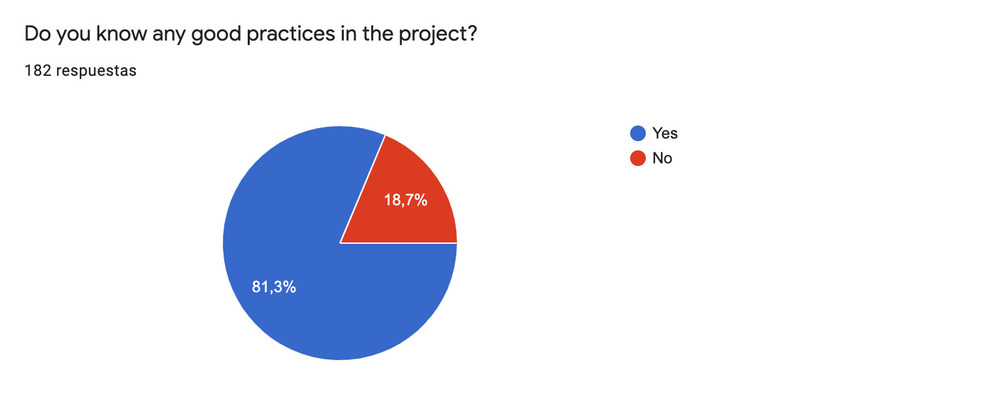
The questions discussed below are scaled, with 1 being strongly disagree and 4 being strongly agree.
60% strongly agree that the project improves English language skills.
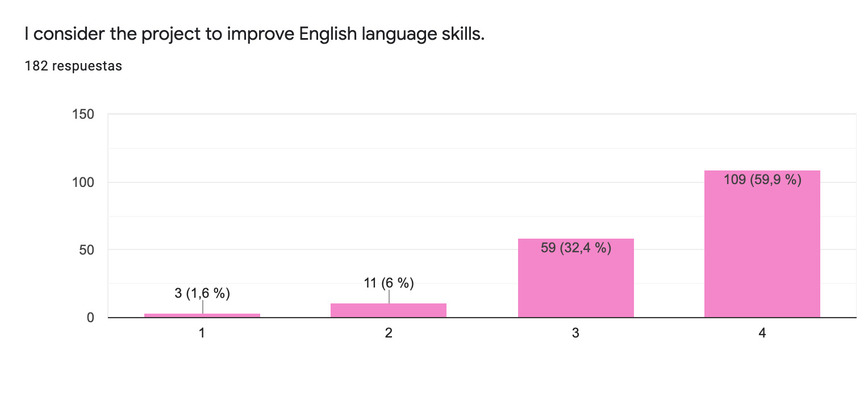
90% agree that the project promotes knowledge of other cultures.
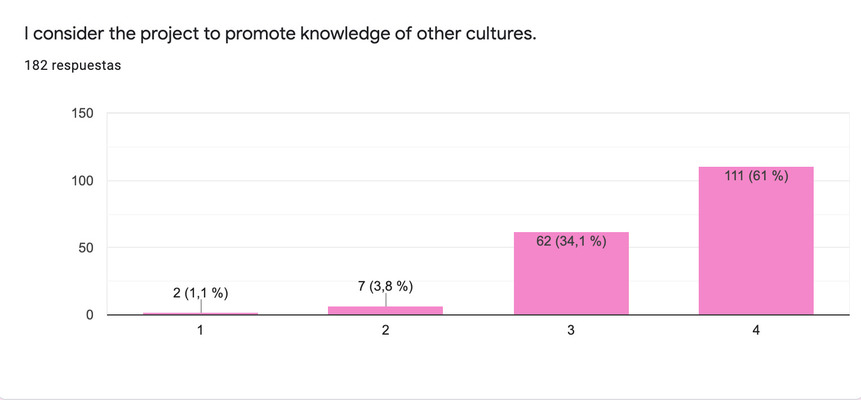
Almost 96% agree with the expression that the project offers opportunities for the correct use of technologies.
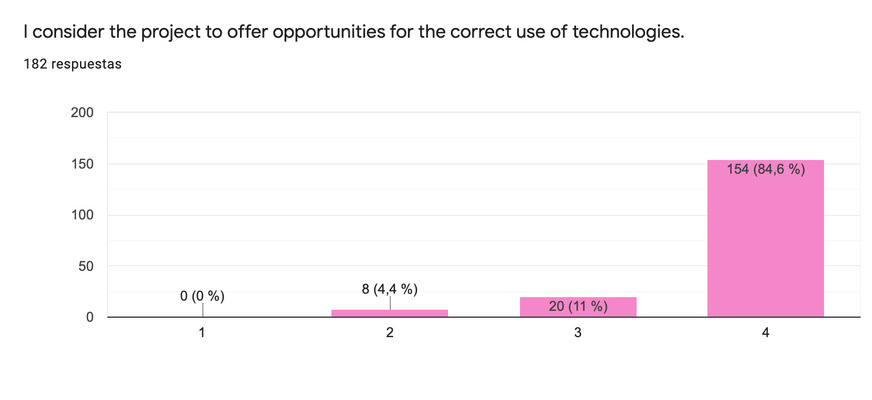
Almost 98% consider that the project provides training on the main risks of the Internet and shares best practices in the field of cybersecurity.
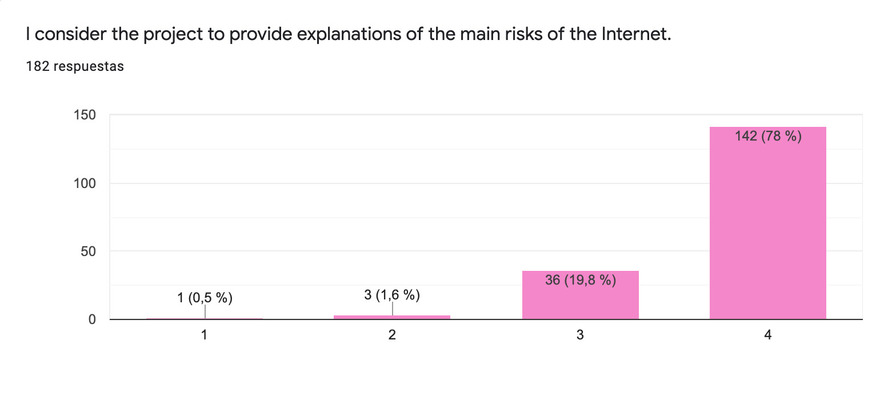
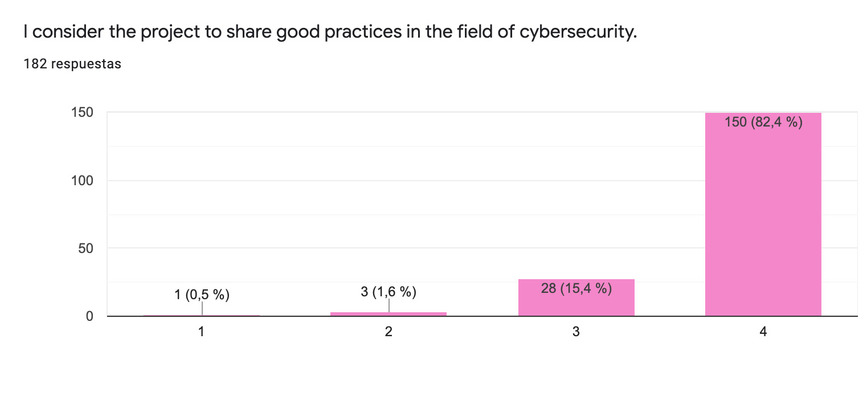
The next question was to indicate the advantages of the project among its participants. A total of 142 comments were collected, which are analysed below.
ADVANTAGES OF THE CONTENTS WORKED ON
Participants recognise that they know how to deal with and prevent the main risks of the Internet, with a special emphasis on cyberbullying. These topics are not included in general curricula or syllabuses. The project activities have allowed them to be more cautious when surfing the Internet; to make a healthy and correct use of social networks; to learn and configure their own electronic devices; to learn about websites that offer advice on cybersecurity while improving their English skills; to play safely; to be more cautious with the information they share. The project has enabled the training of family members who have learned how to surf the Internet safely and have learned about parental control tools that help in technological education at home. In general, they consider that the project offers opportunities for the correct use of technology, with mobilities being one of the means to achieve these ends.
GENERAL ADVANTAGES
Among the general advantages are that the project allows:
- To get to know other countries, cultures, languages and traditions.
- Communicate with other teachers and students from other countries, thus improving English language skills and digital competence.
- To promote peer learning (e-learning).
- To focus learning on those pupils who have been most motivated.
- To develop skills such as public speaking, cooperation, collaboration, teamwork and task planning.
- To foster new relationships based on respect and friendship.
- To internationalise the teaching-learning processes of our centres.
DIFFICULTIES
The next question was to indicate the difficulties encountered, the most important of which were the following:
- Difficulties caused by Covid-19: This prevented the mobility activities from being carried out and meant that everything had to be virtualised, thus losing face-to-face contact.
- Technological difficulties such as poor Internet connection, sound or lack of devices for students.
- Pedagogical difficulties such as the curricular integration of the project activities, or the lack of time for the execution of the tasks.
- Difficulties with family training timetables: monthly sessions during non-teaching hours - from 4 to 6 p.m. approximately.
- Difficulties related to coordination, such as the excessive workload of the coordinating teachers and the different degrees of involvement of the participating teachers.
COMMENTS OF INTEREST
The last qualitative question was for comments of interest not covered above. Participants:
- They would like to see more games and more activities both in terms of communication between students and activities related to the real world.
- They have perceived that virtualising the mobility activities has enabled more pupils to participate.
- They see the project as an opportunity to enrich their lives with countless values, encourage pupils to engage in service learning with their respective educational communities and to be more responsible in the issues addressed.
- They think that the methodology used (Project Based Learning) has been very successful.
- They think that the role of "cyber-mentor" should be extended to all pupils motivated by the project.
- They would like the project to be continued after its completion.
The last question was aimed at showing the degree of satisfaction. 77.5% of the participants gave it a score of 10; 19.8% gave it a score of 7.5 on a decimal scale (0 - 10).
